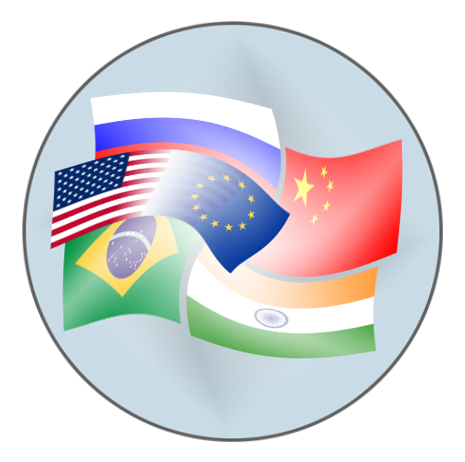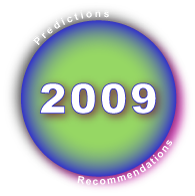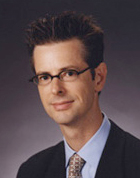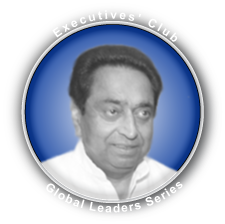Regina Herzlinger Keynotes Chicago Healthcare Executives Forum 35th Anniversary
Five-Point Prescription for U.S. Health Care—Involving Patients
 CHEF Chicago’s hospital executives listened raptly to Dr. Regina Herzlinger‘s impassioned message for transforming U.S. health care at their 35th anniversary celebration this month at the J.W. Marriott in Chicago. Dr. Herzlinger is respected and renowned for her message, so there were few surprises. The most distinctive element of her point of view is her strategy for taking a retail-led approach to transforming health care. She is very market- and consumer-focused, which is refreshing because it relies on the market and customers at least as much as the government. “Who Killed Health Care?” is her latest book, and she is a regular advisor to federal and state government officials. CHEF Chicago’s hospital executives listened raptly to Dr. Regina Herzlinger‘s impassioned message for transforming U.S. health care at their 35th anniversary celebration this month at the J.W. Marriott in Chicago. Dr. Herzlinger is respected and renowned for her message, so there were few surprises. The most distinctive element of her point of view is her strategy for taking a retail-led approach to transforming health care. She is very market- and consumer-focused, which is refreshing because it relies on the market and customers at least as much as the government. “Who Killed Health Care?” is her latest book, and she is a regular advisor to federal and state government officials.
[…]
At first, it seemed that the machine had tilted, its levers, bells and flippers having hit some kind of glitch, causing us to lose the ball and the bonus points.
 As the curtain rises on the second decade of the twenty-first century, we will see that the machine is actually fine, but it’s become a different game. Quite entirely. To put it mildly, “the economy” is proving to be quite a drama, its pungence largely dependent on where your company or career is wired into it. Although it is quite frowned upon in the U.S. to admit despair, some pundits have even flirted with the moniker, “The Great Recession” to describe the crisis, a faint nod to the Great Depression of the 1930s, but this comparison is off-base. As I have argued for some time, the 2007-2010 “financial crisis” has played a mere overture to the real story, a transformation of the global “economic architecture.” I first heard this deft phrase from His Excellency Shri Kamal Nath, India’s very diplomatic Minister of Commerce in 2008 (coverage here). As the curtain rises on the second decade of the twenty-first century, we will see that the machine is actually fine, but it’s become a different game. Quite entirely. To put it mildly, “the economy” is proving to be quite a drama, its pungence largely dependent on where your company or career is wired into it. Although it is quite frowned upon in the U.S. to admit despair, some pundits have even flirted with the moniker, “The Great Recession” to describe the crisis, a faint nod to the Great Depression of the 1930s, but this comparison is off-base. As I have argued for some time, the 2007-2010 “financial crisis” has played a mere overture to the real story, a transformation of the global “economic architecture.” I first heard this deft phrase from His Excellency Shri Kamal Nath, India’s very diplomatic Minister of Commerce in 2008 (coverage here).
[…]
In the knowledge economy, people are motivated by greater autonomy, mastery, and purpose—not by carrots or sticks.. connectivity is second only to a water pump in its significance to a village.. It will not be enough, as it was back in the early Web, to just leave a website lying around to be found. Business has to become a travelling exhibit, a movable market stall that can be adjusted and placed wherever people are or want to be.. Marketers have begun to view social networks as a significant marketing contact point (and perhaps even more important than traditional channels) for procuring consumer data and knowledge.. people are diving into the Web 2.0 and 3.0 pools before they even know with whom they are swimming.. In 2010 we will see more public agencies taking risks to engage in this sort of “flat” information sharing and insight gathering.. sociology will rapidly become the new economics. […]
Review and Analysis of the twenty-first century’s first decade, how Web 1.0 and Web 2.0 are disrupting executives, enterprises, society and government.. crowdsourcing, collaboration, innovation, privacy, globalization, terrorism, organizational unbundling, and how to thrive in the Knowledge Economy’s accelerating volatility, which will spell the end of many Industrial Economy enterprises. […]
President Bill Clinton challenged IIT alumni to use their ingenuity in the service to mankind: “Being a good citizen no longer means paying your taxes and depending on your government. We can use innovation to help the less fortunate directly.” His message fell on ready ears and was deeply appreciated by 2,500 graduates of the Indian Institutes of Technology at PanIIT, their annual global conference, which was held in Chicago, Illinois. […]
Volatility, Uncertainly and Opportunity—Move Crisply while Competitors Are in Disarray
 Now that the Year in Review 2008 has summarized key trends, we are in excellent position for 2009 prognostications, so welcome to Part II. As all experienced executives know, risk and reward are inseparable twins, and periods of disruption elevate both, so you will have much more opportunity to produce uncommon value than normal. Now that the Year in Review 2008 has summarized key trends, we are in excellent position for 2009 prognostications, so welcome to Part II. As all experienced executives know, risk and reward are inseparable twins, and periods of disruption elevate both, so you will have much more opportunity to produce uncommon value than normal.
This is a high-stakes year in which we can expect surprises. Web 2.0 and social networks can help because they increase flexibility and adaptiveness. Alas, those who succeed will have to challenge conventional thinking considerably, which is not a trivial exercise in normal times. The volatility that many businesses face will make it more difficult because many of their clients and/or employees will be distracted. It will also make it easier because some of them will perceive that extensive change is afoot, and Web 2.0 will blend in with the cacaphony. Disruption produces unusual changes in markets, and the people that perceive the new patterns and react appropriately emerge as new leaders.
[…]
Editor’s Choice of the Global Human Capital Journal—Accelerating Disruption and Opportunity
 What a year! When I wrote in the 2007 Year in Review that 2008 “would produce an unimaginable degree of change,” I had no idea how right that would prove to be. We saw major disruption in the global economy, and the U.S. presidential campaign closed the year with a major political upset, largely at the hand of social media. That said, I still believe that 2008 will prove to be a transitional year and that more profound change is on the way. What a year! When I wrote in the 2007 Year in Review that 2008 “would produce an unimaginable degree of change,” I had no idea how right that would prove to be. We saw major disruption in the global economy, and the U.S. presidential campaign closed the year with a major political upset, largely at the hand of social media. That said, I still believe that 2008 will prove to be a transitional year and that more profound change is on the way.
Look in any direction. From a macroeconomic perspective, the global economy is showing itself to be pervasively interdependent. The U.S. successfully exported its real estate finance crisis without even working up a sweat. I don’t believe that anyone really knows where all the bodies are buried yet, and central bank chairmen, national presidents and global organization leaders are still holding their breaths, even though they smile bravely on television. Barack Obama’s successful U.S. presidential campaign showed that a new era of politics is upon us; as we’ll discuss below, […]
New Exit Strategy for Mature Manufacturers—Acquisition by Asian Firms shows how process excellence can inject new vitality into ailing manufacturers.
 Picture this: you are the CEO of a venerable manufacturer that has been besieged by price pressure, increased imports and high capital costs. Revenue has been barely edging up, and profits have been negative three of the last five years. You have had to lay off a significant portion of manufacturing personnel, many of whom had been with you more than a generation.Your ship is still taking on water despite best efforts, and you do not know where to turn. Picture this: you are the CEO of a venerable manufacturer that has been besieged by price pressure, increased imports and high capital costs. Revenue has been barely edging up, and profits have been negative three of the last five years. You have had to lay off a significant portion of manufacturing personnel, many of whom had been with you more than a generation.Your ship is still taking on water despite best efforts, and you do not know where to turn.
This was precisely the situation of several U.S. firms that took the unusual route of selling themselves to Indian firms that turned the companies around very quickly by applying sophisticated process and management expertise. In many cases, local employment increased because the companies became much more competitive. Here are two examples:
[…]
India Trade Minister Draws Chicago-India Parallels at Executives’ Club offers coverage of Shri Kamal Nath’s Chicago presentation. Key themes: new global economic architecture presages economic realignment and thinking beyond the obvious to tap emerging opportunities.
 Illinois leaders were addressed by His Excellency Shri Kamal Nath, Minister of Commerce and Industry, Republic of India. True to form, His Excellency struck chords of transformation, partnership, common interests and harmony at the lunch held in his honor at the University Club on 19 February 2008. Attending were Chicago Mayor Richard M. Daley, Mr. Rajinder Bedi, Managing Director of the Illinois Office of Trade and Investment, The Honorable Susan Schwab, U.S. Trade Representative, Craig S. Donohue, Chief Executive Officer, CME Group and John Estey, President & Chief Executive Officer, SC Electric Company. Illinois leaders were addressed by His Excellency Shri Kamal Nath, Minister of Commerce and Industry, Republic of India. True to form, His Excellency struck chords of transformation, partnership, common interests and harmony at the lunch held in his honor at the University Club on 19 February 2008. Attending were Chicago Mayor Richard M. Daley, Mr. Rajinder Bedi, Managing Director of the Illinois Office of Trade and Investment, The Honorable Susan Schwab, U.S. Trade Representative, Craig S. Donohue, Chief Executive Officer, CME Group and John Estey, President & Chief Executive Officer, SC Electric Company.
Reading between the lines, the U.S. and India stand at a significant turning point: India’s impressive economic growth is a significant element of the ongoing redistribution of global economic power—which holds excellent opportunities for U.S. businesses and workers that are looking for it.
[…]
Year in Review 2007—Editor’s Choice of the Global Human Capital Journal
 As I reflect on 2007 and create strategy for 2008, several macro-trends come into sharp relief, and I believe that some of them might be helpful to you as you conduct your own planning. As always, I focus on emerging phenomena because they are areas in which disruption and discontinuous change are acting on markets, thereby elevating threats and opportunities. Helping leaders to create strategy to manage the risk of unusual market developments is the focus of my consulting practice. As I reflect on 2007 and create strategy for 2008, several macro-trends come into sharp relief, and I believe that some of them might be helpful to you as you conduct your own planning. As always, I focus on emerging phenomena because they are areas in which disruption and discontinuous change are acting on markets, thereby elevating threats and opportunities. Helping leaders to create strategy to manage the risk of unusual market developments is the focus of my consulting practice.
In 2007 it became clear to me that we were entering a profound social transformation that would produce an unimaginable degree of change. Unlike the technology-precipitated change that I’ve been helping people with since the 1990s, technology is shifting to the background now, and pervasive social change is taking the stage. Look for disruption in all areas affected by how people connect, communicate, purchase and collaborate: business, politics, community and leisure. Moreover, these changes are completely global with all the variations that engenders.
I can’t tell […]
|
|
 CHEF Chicago’s hospital executives listened raptly to Dr. Regina Herzlinger‘s impassioned message for transforming U.S. health care at their 35th anniversary celebration this month at the J.W. Marriott in Chicago. Dr. Herzlinger is respected and renowned for her message, so there were few surprises. The most distinctive element of her point of view is her strategy for taking a retail-led approach to transforming health care. She is very market- and consumer-focused, which is refreshing because it relies on the market and customers at least as much as the government. “Who Killed Health Care?” is her latest book, and she is a regular advisor to federal and state government officials.
CHEF Chicago’s hospital executives listened raptly to Dr. Regina Herzlinger‘s impassioned message for transforming U.S. health care at their 35th anniversary celebration this month at the J.W. Marriott in Chicago. Dr. Herzlinger is respected and renowned for her message, so there were few surprises. The most distinctive element of her point of view is her strategy for taking a retail-led approach to transforming health care. She is very market- and consumer-focused, which is refreshing because it relies on the market and customers at least as much as the government. “Who Killed Health Care?” is her latest book, and she is a regular advisor to federal and state government officials.
 As the curtain rises on the second decade of the twenty-first century, we will see that the machine is actually fine, but it’s become a different game. Quite entirely. To put it mildly, “the economy” is proving to be quite a drama, its pungence largely dependent on where your company or career is wired into it. Although it is quite frowned upon in the U.S. to admit despair, some pundits have even flirted with the moniker, “The Great Recession” to describe the crisis, a faint nod to the Great Depression of the 1930s, but this comparison is off-base. As I have argued for some time, the 2007-2010 “financial crisis” has played a mere overture to the real story, a transformation of the global “economic architecture.” I first heard this deft phrase from His Excellency Shri Kamal Nath, India’s very diplomatic Minister of Commerce in 2008 (coverage here).
As the curtain rises on the second decade of the twenty-first century, we will see that the machine is actually fine, but it’s become a different game. Quite entirely. To put it mildly, “the economy” is proving to be quite a drama, its pungence largely dependent on where your company or career is wired into it. Although it is quite frowned upon in the U.S. to admit despair, some pundits have even flirted with the moniker, “The Great Recession” to describe the crisis, a faint nod to the Great Depression of the 1930s, but this comparison is off-base. As I have argued for some time, the 2007-2010 “financial crisis” has played a mere overture to the real story, a transformation of the global “economic architecture.” I first heard this deft phrase from His Excellency Shri Kamal Nath, India’s very diplomatic Minister of Commerce in 2008 (coverage here). Now that the Year in Review 2008 has summarized key trends, we are in excellent position for 2009 prognostications, so welcome to Part II. As all experienced executives know, risk and reward are inseparable twins, and periods of disruption elevate both, so you will have much more opportunity to produce uncommon value than normal.
Now that the Year in Review 2008 has summarized key trends, we are in excellent position for 2009 prognostications, so welcome to Part II. As all experienced executives know, risk and reward are inseparable twins, and periods of disruption elevate both, so you will have much more opportunity to produce uncommon value than normal. What a year! When I wrote in the 2007 Year in Review that 2008 “would produce an unimaginable degree of change,” I had no idea how right that would prove to be. We saw major disruption in the global economy, and the U.S. presidential campaign closed the year with a major political upset, largely at the hand of social media. That said, I still believe that 2008 will prove to be a transitional year and that more profound change is on the way.
What a year! When I wrote in the 2007 Year in Review that 2008 “would produce an unimaginable degree of change,” I had no idea how right that would prove to be. We saw major disruption in the global economy, and the U.S. presidential campaign closed the year with a major political upset, largely at the hand of social media. That said, I still believe that 2008 will prove to be a transitional year and that more profound change is on the way. Picture this: you are the CEO of a venerable manufacturer that has been besieged by price pressure, increased imports and high capital costs. Revenue has been barely edging up, and profits have been negative three of the last five years. You have had to lay off a significant portion of manufacturing personnel, many of whom had been with you more than a generation.Your ship is still taking on water despite best efforts, and you do not know where to turn.
Picture this: you are the CEO of a venerable manufacturer that has been besieged by price pressure, increased imports and high capital costs. Revenue has been barely edging up, and profits have been negative three of the last five years. You have had to lay off a significant portion of manufacturing personnel, many of whom had been with you more than a generation.Your ship is still taking on water despite best efforts, and you do not know where to turn. Illinois leaders were addressed by His Excellency Shri Kamal Nath, Minister of Commerce and Industry, Republic of India. True to form, His Excellency struck chords of transformation, partnership, common interests and harmony at the lunch held in his honor at the University Club on 19 February 2008. Attending were Chicago Mayor Richard M. Daley, Mr. Rajinder Bedi, Managing Director of the Illinois Office of Trade and Investment, The Honorable Susan Schwab, U.S. Trade Representative, Craig S. Donohue, Chief Executive Officer, CME Group and John Estey, President & Chief Executive Officer, SC Electric Company.
Illinois leaders were addressed by His Excellency Shri Kamal Nath, Minister of Commerce and Industry, Republic of India. True to form, His Excellency struck chords of transformation, partnership, common interests and harmony at the lunch held in his honor at the University Club on 19 February 2008. Attending were Chicago Mayor Richard M. Daley, Mr. Rajinder Bedi, Managing Director of the Illinois Office of Trade and Investment, The Honorable Susan Schwab, U.S. Trade Representative, Craig S. Donohue, Chief Executive Officer, CME Group and John Estey, President & Chief Executive Officer, SC Electric Company.